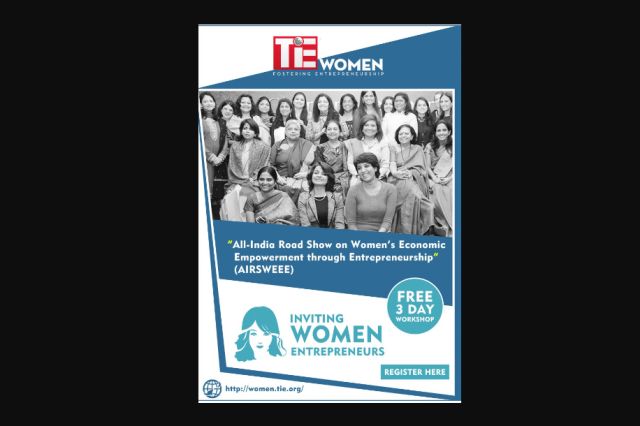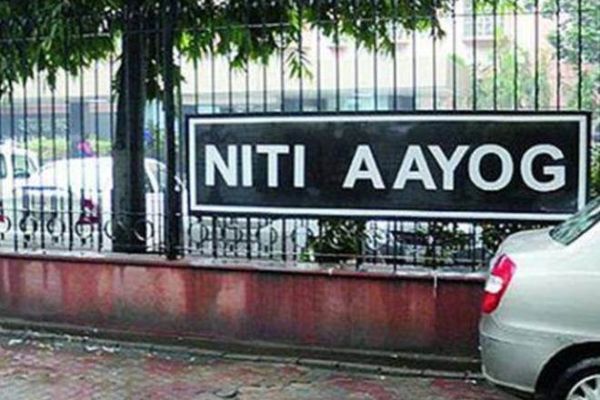
by Editor | May 25, 2021 | Business Ideas, Corporate, Corporate Buzz, Entrepreneurship, Muslim World
 United Ntaions : A UN-linked fund awarded $1 million to two Bangladeshi companies in recognition of their novel project to allow villagers more access to solar power and entrepreneurship.
United Ntaions : A UN-linked fund awarded $1 million to two Bangladeshi companies in recognition of their novel project to allow villagers more access to solar power and entrepreneurship.
Grameen Shakti and ME SOLshare built a platform on which household solar system users can trade solar power with non-users, which enables villagers to become entrepreneurs, reports Xinhua news agency.
The UN-DESA Energy Grant is a capacity building initiative launched and managed by the UN Department of Economic and Social Affairs (DESA) in collaboration with the China Energy Fund Committee, a Hong Kong-based non-governmental organisation.
The project’s bottom-up mini grids have transformed household solar system into a way to generate profits, a model that can be applied to areas without a power grid throughout Bangladesh and the rest of the world.
It is estimated that they can establish a minimum of 100 smart grids with the grant money, benefiting at least 15,000 people, and its impact will be greater, since it is likely to inspire more such initiatives.
“We believe this award underlines the transformation the global energy sector is undergoing to a decentralized, decarbonised, democratised and digitalised one, where Bangladesh, through the great efforts taken by the Bangladesh Government through the Infrastructure Development Company Limited, has already set a great example,” the companies said in a joint statement on Wednesday.
—IANS

by Editor | May 25, 2021 | Entrepreneurship, Startup Basics, Startup Financing
 Bengaluru : India added about 1,000 technology start-ups in 2017, retaining its position as the third largest hub for entrepreneurship, IT apex body Nasscom said on Thursday.
Bengaluru : India added about 1,000 technology start-ups in 2017, retaining its position as the third largest hub for entrepreneurship, IT apex body Nasscom said on Thursday.
“About 1,000 tech start-ups were registered this year (2017), taking their total to 5,200 and making India the world’s third largest start-up ecosystem,” said Nasscom Chairman Raman Roy here at an event.
Releasing a joint report on the ‘Indian Start-up Ecosystem – Traversing the maturity cycle’, at the ninth annual edition of Nasscom Product Conclave, Roy said despite tough competition from Britain and Israel, India retained its momentum as a vibrant landscape for start-ups.
“Bengaluru, Delhi/NCR and Mumbai retained their position as the key start-up hubs, with 20 per cent of the start-ups emerging from tier-2 and tier-3 cities across the country,” Roy said.
He cited the report Nasscom compiled with city-based research, consulting and advisory firm Zinnov.
Among the verticals, health-tech, fin-tech and e-commerce have seen a rapid rise in the B2B (business-to-business) segment, signifying maturing growth.
“The Indian IT industry is renowned for pioneering innovation and the start-ups arena is no different. Our country is one of the fastest growing start-up landscapes, with the participation of every major accelerator, investor and angel group from the world over,” Roy said.
Noting that the ecosystem was ripe for healthy growth through verticals and innovative business model, Roy said the Indian landscape was brimming with innovative ideas, which need guidance to accelerate, scale-up and funding.
“With 40 per cent of start-ups in the B2B segment, its share in the tech start-up funding is 30 per cent, thanks to corporates, which are supporting them with 50 collaboration programmes, 20 accelerators and 40 investors,” said Roy.
Fin-tech start-up base is about 360, indicating 31 per cent annual growth, with $200-million funding in the first half of this year, recording a whopping 135 per cent annual growth.
“Sub-segments like digital payments and lending are maturing, while wealth management and insurance-tech emerging as growth areas. Implementation of advanced technology are also becoming prominent, with 33 per cent fintech funding towards advanced technologies like Artificial Intelligence (AI) and analytics,” said Roy.
Similarly, health-based technology start-ups are 320, with 28 per cent annual growth and attracted $160-million funding in the April-September period, which is an increase of 129 per cent in the same period of 2016.
“With 60 per cent start-ups, the B2C (business-to-customer) segment is focused on creating innovative business models and taking the vertical approach, securing about 70 per cent funding in the year’s first half,” said Roy, also Chief Executive Officer of Quatrro Global Services, on the occasion.
Observing that the ecosystem was driven by young, diverse and inclusive entrepreneurs, Nasscom President R. Chandrashekhar said the landscape was leading to focused domain solutions in verticals like healthcare, agriculture and education.
“Findings of the report is a testimony to the potential of the start-up landscape and the scope of growth and opportunity that India presents.
“We will continue its drive towards catalysing tech start-ups, build category leaders and support start-ups to create for India,” said the former Telecom Secretary.
Growing at five-year CAGR of 30 per cent, advanced start-ups are focused on creating solutions in Artificial Intelligence, Analytics, Augmented Reality, Virtual reality, Blockchain and Internet of Things.
Enterprise and SMB (small and medium businesses) focused start-ups, which are SaaS (software as a service) are also getting venture funds.
With 167 per cent growth, funding of the start-up ecosystem led by unicorns stood at $6.4 billion till September.
—IANS

by Editor | May 25, 2021 | Entrepreneurship, Women Entrepreneur
 New Delhi : In a bid to uplift women’s entrepreneural spirit in the country, the All India Road Show on Women’s Economic Empowerment through Entrepreneurship (AIRSWEEE) programme aims to impact around 450 women entrepreneurs across 30 cities, Chairperson Seema Chaturvedi said here on Monday.
New Delhi : In a bid to uplift women’s entrepreneural spirit in the country, the All India Road Show on Women’s Economic Empowerment through Entrepreneurship (AIRSWEEE) programme aims to impact around 450 women entrepreneurs across 30 cities, Chairperson Seema Chaturvedi said here on Monday.
An initiative of not-for-profit organisation TiE Global, the AIRSWEEE programme was launched in September 2016 with the objective of helping develop business and entrepreneurial skills to empower women economically.
The California-based TiE Global has created significant economic impact by mentoring 125 women from 27 mostly tier-II and tier-III Indian cities.
“The first phase was 125 women, five cities. We had women coming from 27 cities, travelling to those five cities workshops. In our next round, we still have five workshops but we are hoping to get women from 30 cities,” Chaturvedi told IANS in an interaction.
“We will most probably launch our workshops by February-March of next year and then there will be six months of mentoring,” she added.
The five cities included Coimbatore (Tamil Nadu), Warangal (Telangana), Jaipur (Rajasthan), Nagpur (Maharashtra) and Durgapur (West Bengal).
The AIRSWEE programme was funded by the US Department of State, which is committed to promoting entrepreneurship in India.
Chaturvedi, who is also the Managing Director of investment banking and knowledge services firm Accelerator Group LLC, announced the group’s commitment to seed the launch of a $25 million early stage private equity fund — Achieving Women Entrepreneurs (AWE) Fund I — specially for women-owned and -led enterprises.
“The first round of funding from the US state department was for us building capacity for 125 women… The impact of round one was that it led our firm to launch the creation of a $25 million fund. Our fund is the outcome of the impact created by AIRSWEEE,” said Chaturvedi.
“In the second round of funding, we are going to be more ambitious. We will actually try to reach a total of 450 women, 150 directly by actually mentoring them.”
In the first phase of the AIRSWEEE programme, TiE Global invited US-based and India-based mentors to train aspiring and early stage women entrepreneurs by conducting skill development workshops in five cities. Twenty-five participants were selected to undergo additional mentoring for a period of six months in the second phase.
Chaturvedi added: “We would love to welcome other partners so that it does not just have to be the US state department funding us. We would love for other foundations to jump in and give us funding so that we can grow this programme.”
—IANS

by Editor | May 25, 2021 | Corporate, Corporate Buzz, Corporate finance, Entrepreneurship, Success Stories
 Bhubaneswar : World Bank’s global head for Rural Livelihoods and Agricultural Jobs Parmesh Saha on Thursday suggested that Odisha government transform the state’s bumper agricultural production base into entrepreneurship by setting up more incubation centres and food processing clusters.
Bhubaneswar : World Bank’s global head for Rural Livelihoods and Agricultural Jobs Parmesh Saha on Thursday suggested that Odisha government transform the state’s bumper agricultural production base into entrepreneurship by setting up more incubation centres and food processing clusters.
“Because of a series of promotional interventions during last years, the state has been able to build all pre-conditions required for growth and job creation in the agricultural sector. Now the state has become a land of bumper production,” said Saha, who was delivering an address at the Odisha Knowledge Hub Lecturer series here.
Saha also suggested for collaboration between the state and World Bank for the promotion of grassroots incubation for the food industry.
He maintained that globally around 21 per cent of jobs are created by the food processing and agro-processing sectors.
He cited the examples of South Asian countries, Europe, France, Thailand, and Holland, where more jobs were created by transforming the bumper production to agricultural entrepreneurship in agro-processing and food production.
“Growth of small and medium enterprises in agricultural sectors requires prior growth of multiple micro-entrepreneurs. These micro-entrepreneurs along with the small and medium enterprises can generate a large number of job opportunities,” Saha said.
He emphasized that no country could create more jobs without promoting and transforming its agricultural base. “Now that Odisha set a high production base, it could take off in creation of more jobs.”
As per the suggestions made by the Secretaries and District Collectors, who participated in the talk, it was decided that the World Bank team would work with Odisha government in the transformation of producer groups to entrepreneurs.
Development Commissioner R. Balakrishnan said that the talk focused on how the non-cereal products of Odisha could get a world market and how production of mango, cashew vegetables and fruits could be transformed to entrepreneurship for creation of more jobs in rural society.
“The state administration would have further engagement with World Bank groups for the creation of more incubation facilities in rural Odisha,” he said.
—IANS

by Editor | May 25, 2021 | Business, Business Ideas, Corporate, Corporate Governance, Entrepreneurship, SMEs, Startup Basics
 New Delhi : The Niti Aayog on Wednesday invited applications for its “Mentor India” campaign aimed at engaging industry leaders to mentor students in various schools across the nation.
New Delhi : The Niti Aayog on Wednesday invited applications for its “Mentor India” campaign aimed at engaging industry leaders to mentor students in various schools across the nation.
Envisaged to be the largest formal volunteer mentor network, the campaign is aimed at maximising the impact of Atal Tinkering Labs, a statement from the Niti Aayog said.
Under the campaign, the government’s premier think-tank is looking for corporates, professionals, academicians and students “who are keen to contribute to this strategic nation building initiative”, it said.
The deadline for submission of applications to join Mentor India is September 30.
The mentors would guide students at more than 900 Atal Tinkering Labs set up across the country as a part of the Atal Innovation Mission (AIM).
Atal Tinkering Labs are dedicated work spaces — equipped with state-of-the-art equipment such as 3D printers, robotics and electronics development tools — where students from Class 6 to Class 12 can learn innovation skills and develop ideas.
“Mentor India has already received strong support from corporate India. More than 30 of India’s top thought leaders have signed up as brand ambassadors for the initiative,” the Niti Aayog said.
“More than 90 Atal Tinkering Labs in schools across India have been adopted and are being supported by various corporations and institutions from multiple sectors,” it said, adding that it was looking to engage with more institutions to adopt these labs and enable their employees to join Mentor India as volunteers.
“Possible areas of contribution from mentors include technical knowhow, innovation and design, inspirational, and business and entrepreneurship,” it said.
Under the programme, the mentors are expected to spend one to two hours every week in one or more such labs and discuss with students the various problems our society is facing and motivate them to develop solutions to these community problems, the statement said.
—IANS

 United Ntaions : A UN-linked fund awarded $1 million to two Bangladeshi companies in recognition of their novel project to allow villagers more access to solar power and entrepreneurship.
United Ntaions : A UN-linked fund awarded $1 million to two Bangladeshi companies in recognition of their novel project to allow villagers more access to solar power and entrepreneurship.



